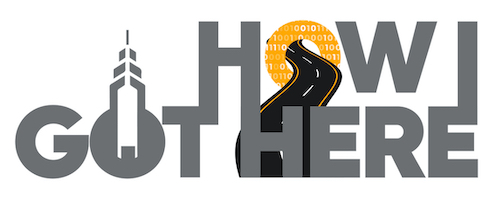Our economy is constantly in flux. That’s a fact. But over the past few years, that fact has started to seem like an understatement. Lightning-fast innovation in the technology sector, coupled with the complexities of the pandemic, have led to seismic shifts in employment, hiring, productivity and more.
Indeed, innovation and the pandemic have rapidly transformed how people across many industries work. Digital skills such as proficiency with video conferencing or fluency with scheduling and timekeeping software are now fundamental requirements for many workers. From cities like Philadelphia, Baltimore, and DC to the rest of the US, workers — regardless of their industry — are expected to have these skills under their belts.
And yet, major skill gaps remain, especially among workers in lower-wage occupations. While demand for these skills in traditional office settings may have grown organically over time, that’s not necessarily the case for individuals in the retail, construction, healthcare, and administrative industries. A Brookings Institute report on the rise of “digitalization” found that the use of technology continues to grow even in industries without a history of requiring such skills, creating new barriers to entry for workers.
The solution? We need to empower workers at all levels with “cyber soft skills” — a blend of digital abilities and traditional soft skills that are essential in today’s workplace. These include skills like composing professional, concise electronic messages; mastering word processing systems to create resumes and cover letters; and a general facility with app and web interfaces to ease the adoption of timekeeping and point-of-sale software, for example.
In today’s world, technology training should be geared toward everyone, and at every occupational level.
The first step in this process is to establish a universal benchmark that defines cyber soft skills. A benchmarked definition will ensure that employers across industries are aligned and that workers have a shared set of learning objectives. This isn’t a task for a single organization — government and policymakers are best suited to develop this benchmark, working with workforce development leaders and industry representatives to incorporate training best practices and industry-driven needs. For this particular task, a wide survey of employers on the basic digital skills they require for entry-level and lower-wage positions can provide critical insights that will lay the foundation for the credential.
To complement this work, educational institutions — such as Baltimore City College or the Northeast Regional Library in Philadelphia — can create credentials and certifications that capture these skills. Nonprofits have a role to play as well. Consider EveryoneOn, an organization bringing low-cost internet and computers, plus digital literacy training, to communities in need. Partnering with EveryoneOn and others that make technology accessible is a critical piece of this puzzle.
Workers are also critical to defining the cyber soft skills they need. In national focus groups with workers in lower-wage occupations this year, workers expressed a desire to gain training and advance their careers, which can help define the skills their preferred jobs ask of them.
Investment will be required to upgrade skills for all workers, but there will be a clear return on investment. Right now, there are in-demand jobs that can’t be filled due to the cyber soft skills gap. Consider cities like DC and Philadelphia, where the cybersecurity industry is growing — but needs more workers to truly flourish. Further, cyber soft skills can provide a foot in the door for underrepresented workers who seek to ultimately enter the tech industry. Facility with software and apps is the first step to gaining true tech fluency. And when training is done at the high school or community college level, it can create a pathway to jobs for local students, preventing an exodus to tech hubs like Silicon Valley and keeping tech talent local. In short: It can curtail brain drain and strengthen local communities.
Technology-focused training is traditionally geared toward people and occupations in high-tech industries, like software development or chip manufacturing. But in today’s world, technology training should be geared toward everyone, and at every occupational level. By equipping workers with cyber soft skills, we’re creating a more potent workforce — and setting up workers for success.

This guest post is a part of How I Got Here Month of Technical.ly's editorial calendar.
Join our growing Slack community
Join 5,000 tech professionals and entrepreneurs in our community Slack today!
Donate to the Journalism Fund
Your support powers our independent journalism. Unlike most business-media outlets, we don’t have a paywall. Instead, we count on your personal and organizational contributions.

Maryland firms score $5M to manufacture everything from soup to nanofiber

National AI safety group and CHIPS for America at risk with latest Trump administration firings

Immigration-focused AI chatbot wins $2,500 from Temple University to go from idea to action


